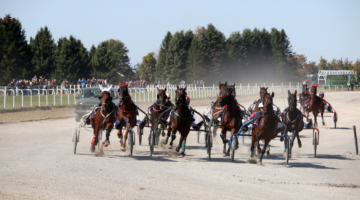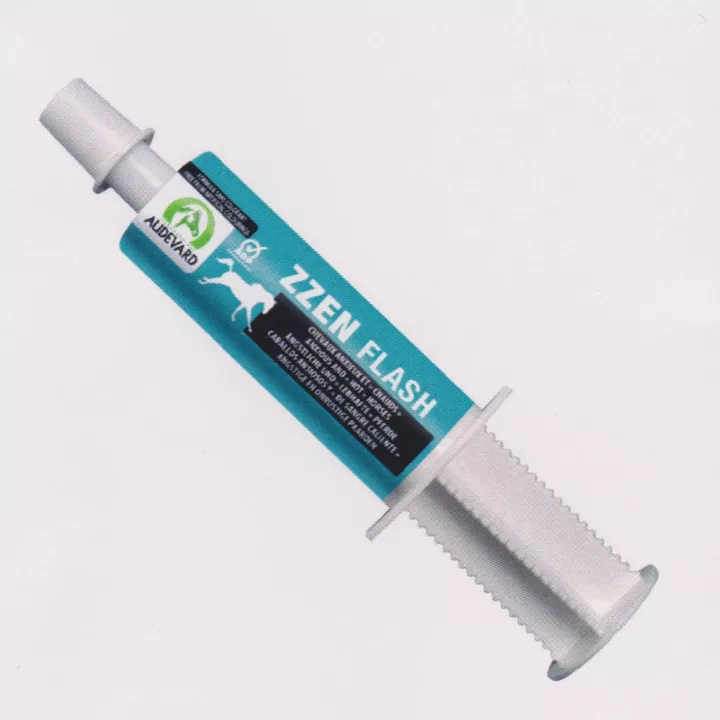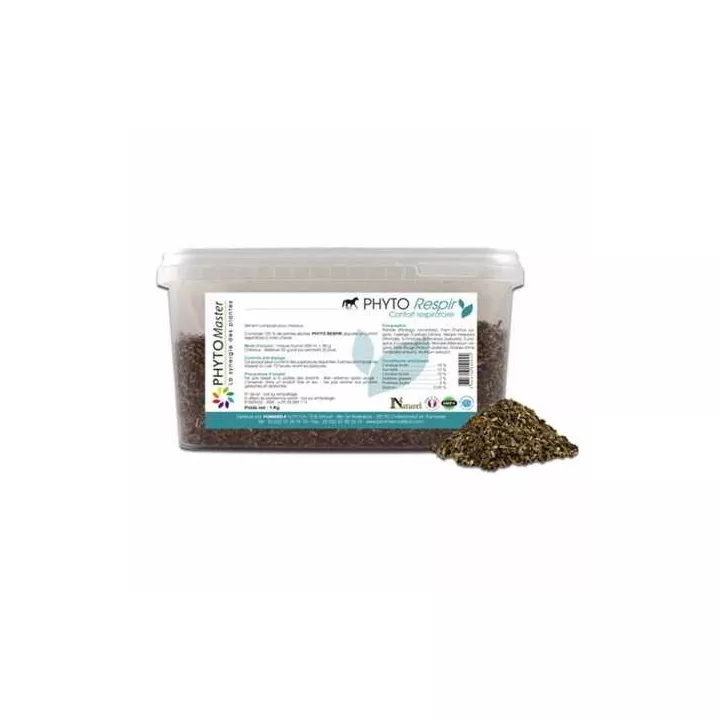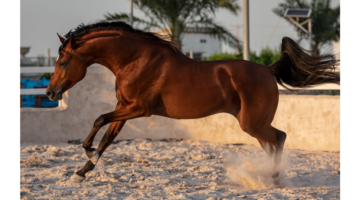What is Phyto-Forme Horse Phytomaster 1kg pot?
Phyto-Forme is a 100% natural, dried plant-based food supplement designed to boost a horse's immune defenses.
It is indicated in cases of :
- Convalescence
- To prepare for a competition
- After medical treatment
Phyto-Forme is composed of :
- Stinging Nettle : Leaf and Root / Rich in Zinc, Minerals, trace elements and B Vitamins, nettle is known for its depurative, anti-inflammatory, diuretic and tonic properties.
- Dandelion: Leaf and Root / Taraxacin, tannins, flavonoids, Vitamins A, B, C, D and many mineral salts are found in the essential components of dandelion. It facilitates theelimination of toxins of infectious, dietary and environmental origin.
- Peppermint: Leaf / Peppermint leaves contain menthol, tannins, flavonoids and bitter principles. They are especially appreciated for their aromatic and digestive properties.
- Rosehip: Fruit / Rosehip is above all an excellent source of vitamin C, vitamin B, betacarotene, other antioxidants and minerals. It is also known for its anti-fatigue and diuretic properties.
- Thyme: Leaf / Thyme components have been shown to have antimicrobial activity against a variety of different bacteria. In fact, thyme contains thymol, a very important component with antiseptic and antifungal characteristics. Thyme also contains minerals and vitamins.
- Brewer's yeast: a source of B vitamins,essential for the proper functioning of the nervous system and muscles. Today, brewer's yeast is known as a "probiotic": it's a "living" material, interactive in the intestines, and a source of vitamins, essential trace elements and other benefits, including for the skin.
- Fenugreek: Seed / Fenugreek is extremely rich in proteins, vitamins and minerals. It is known to enhance general growth, vitality and the intestinal assimilation of vitamins, minerals and proteins.
- Red clover: Flowering tops / The flowering tops of red clover contain over a hundred potentially active compounds in addition to isoflavones, which explain its expectorant, diuretic, depurative and anti-inflammatory properties.
- Oregano: One of the richest plants in antioxidants. Oregano is tonic, antispasmodic, antitussive, expectorant, antiseptic and calming (in low doses). Recommended for combating the effects of influenza, bronchial ailments and digestive disorders.
- Seaweed (Fucus vesiculosus) : Thallus / Fucus vesiculosus provides numerous amino acids, trace elements, vitamins C, A and E, iodine and lipids that are easily assimilated by the body. The properties of seaweed are numerous and exceptional.
We also offer the Phytomaster Phyto-jument herbal blend at the best price in our online pharmacy.
How to use this herbal blend
Measure supplied 200 ml = 50 g
Horses: dispense 50 g daily for 20 days.
Give your opinion on the directions for use and dosage of Phyto-forme Cheval Phytomaster pot 1kg with our partner Verified opinions after your purchase.
Precautions for use
Do not give to pregnant or nursing mares.
Warning: Phyto respir may contain doping substances. Please suspend treatment 72 hours before competitions.
What does it contain?
Stinging nettle (Urtica dioica), Dandelion (Taraxacum officinalis), Peppermint (Mentha piperita), Rosehip (Rosa canina), Thyme
Thymus vulgaris), brewer's yeast, Fenugreek (Trigonella foenum-graecum), Red clover (Trifolium pratense), Oregano (Origanum
vulgare), Seaweed (Fucus vesiculosus).
Analytical constituents :
Crude celullose ......................... 15
Crude ash ......................... 11
Moisture .................................... 10
Crude protein ......................... 3% Fat
Fat ......................... 3% Sodium
Sodium ....................................... <1 %
Packaging
1 kg jar = 20 days of supplementation
Contrary to popular belief, phytotherapy isn't just for humans - it also relieves animals of bodily ailments through the effects of plants. Horses can find the plants themselves when in the pasture, or they can be given to them by their rider to prevent a recurring ailment at certain times of the year.
Horses are herbivores and, before they were domesticated by man, were always used to living in large green spaces. In addition to grass, horses also consume other plants, which they instinctively select to protect themselves from digestive or physical disorders. In fact, these plants often act as a preventive measure, avoiding the need for the rider to administer medication to his horse.









